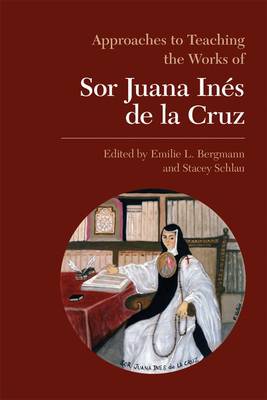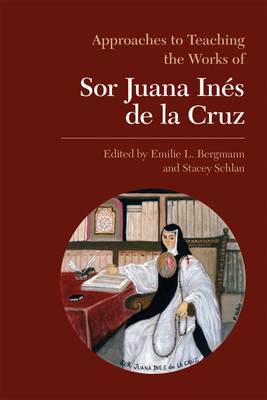
- Afhalen na 1 uur in een winkel met voorraad
- Gratis thuislevering in België vanaf € 30
- Ruim aanbod met 7 miljoen producten
- Afhalen na 1 uur in een winkel met voorraad
- Gratis thuislevering in België vanaf € 30
- Ruim aanbod met 7 miljoen producten
Approaches to Teaching the Works of Sor Juana Inés de la Cruz
Omschrijving
Sor Juana Inés de la Cruz--a witty, intellectually formidable, and prolific author--stands as an icon of women's early writing and of colonial New Spain. Living in the capital city of seventeenth-century Mexico, she was located in the center of her world, but, as a self-taught, illegitimate, Creole woman and as a nun subject to the authority of male religious leaders, she was also socially marginal within that world. Like other early modern women she took up the pen to challenge gendered norms of the time. In style and content her works, which draw on baroque stylistics, classical rhetoric, and the natural sciences, are key documents in the development of Western literature.
Part 1 of this 98th volume in the Approaches to Teaching series evaluates the most useful materials among the wealth of resources available for teaching Sor Juana, reviews Spanish- and English-language editions of her work, highlights audiovisual and electronic resources for teaching, and recommends critical and historical studies of her writings and her period.
The essays in part 2, "Approaches," aim to help teachers navigate with students not only the complex networks of meaning found in Sor Juana's works but also her complicated social world. Contributors discuss gender and religion in colonial society; the element of the baroque in Sor Juana's writing; the variety of ways Sor Juana subverted generic forms to render social criticism; and the relations between her writing and the twenty-first century.
Specificaties
Betrokkenen
- Uitgeverij:
Inhoud
- Aantal bladzijden:
- 312
- Taal:
- Engels
- Reeks:
- Reeksnummer:
- nr. 98
Eigenschappen
- Productcode (EAN):
- 9780873528160
- Verschijningsdatum:
- 1/12/2007
- Uitvoering:
- Paperback
- Formaat:
- Trade paperback (VS)
- Afmetingen:
- 155 mm x 229 mm
- Gewicht:
- 439 g

Alleen bij Standaard Boekhandel
Beoordelingen
We publiceren alleen reviews die voldoen aan de voorwaarden voor reviews. Bekijk onze voorwaarden voor reviews.










